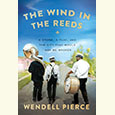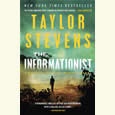Short and Deep
Jessica Francis Kane’s newest story collection is full of wisdom, levity, and truth
Jessica Francis Kane’s third book (and second short-story collection), This Close, has garnered rave reviews: The Millions described its twelve stories as “smart and subtly heartbreaking,” while Kirkus praised them as “subtle, persuasive and psychologically complex.” In a combination of stand-alone pieces and linked stories, Kane presents an eclectic band of characters whose idiosyncrasies, concerns, and desires feel entirely true to life. She writes of loyal but alienated marriages, mothers physically present with but estranged from their children, and of neighbors whose literal proximity allows them to hear each other sneeze even as their emotional distance and judgment of one another make real connection far beyond reach.
 In “American Lawn,” for instance, a middle-aged woman named Pat notices a handwritten flyer at the library: “Wanted: A plot of land for gardening in exchange for vegetables.” Along with a phone number, there was a “flourish underneath the text, hesitant and badly drawn and, in the end, unnecessary. Pat decided it must be the work of a man; a woman’s hand usually lent itself more naturally to adornment.” At home that evening, Pat calls the number and arranges for Kirill, a Croatian immigrant, to take charge of a portion of their backyard. Her motivation isn’t entirely altruistic. Pat’s new neighbors, a twenty-something couple that her husband dismisses as “new nouveau riche,” have hired a landscape architect, leaving Pat feeling competitive and irked.
In “American Lawn,” for instance, a middle-aged woman named Pat notices a handwritten flyer at the library: “Wanted: A plot of land for gardening in exchange for vegetables.” Along with a phone number, there was a “flourish underneath the text, hesitant and badly drawn and, in the end, unnecessary. Pat decided it must be the work of a man; a woman’s hand usually lent itself more naturally to adornment.” At home that evening, Pat calls the number and arranges for Kirill, a Croatian immigrant, to take charge of a portion of their backyard. Her motivation isn’t entirely altruistic. Pat’s new neighbors, a twenty-something couple that her husband dismisses as “new nouveau riche,” have hired a landscape architect, leaving Pat feeling competitive and irked.
She and the woman next door, Janeen, slowly begin to compete for Kirill’s attention without ever making an effort to know him. His wife and child were killed, and he bears physical evidence of torture. Kane explores Kirill’s resilience and the women’s pettiness in a way that teases out both Pat and Janeen’s self-centeredness. As if wearing blinders, the neighbors argue in Kirill’s presence, one referring to him as if he were the other’s belonging, sparking him to drop the sprinkler and walk away without looking back. Pat digs up his phone number, months later, inviting him to return to work in the yard, and he agrees. “And who had he come back to?” Pat thinks to herself. “To her.”
It’s in the small details that Kane’s writing shines. Even as she writes of aching, bone-deep loss, she avoids heavy-handedness. When the checked-out mother of a five-year-old boy starts down the stairs, lighting her cigarette, “he steps quickly after her, reaching for her hand, as he often does, to remind her of him.” An artful writer, Kane doesn’t have to say more. The experience of visiting these characters is comparable to opening the twelve small windows of an advent calendar only to find, one after the other, that the emotional resonance of peering into the scenes is so familiar it’s startling. These people are strangers, yet we know them; their grasping for connection, to themselves and to one another, is specific and personal. The house they live in could be your own house—it’s that close.
Jessica Francis Kane will read from her new story collection, This Close, on April 11 at 6:30 p.m. at Parnassus Books in Nashville. She will appear with Jamie Quatro, who will discuss her own story collection, I Want to Show You More.


